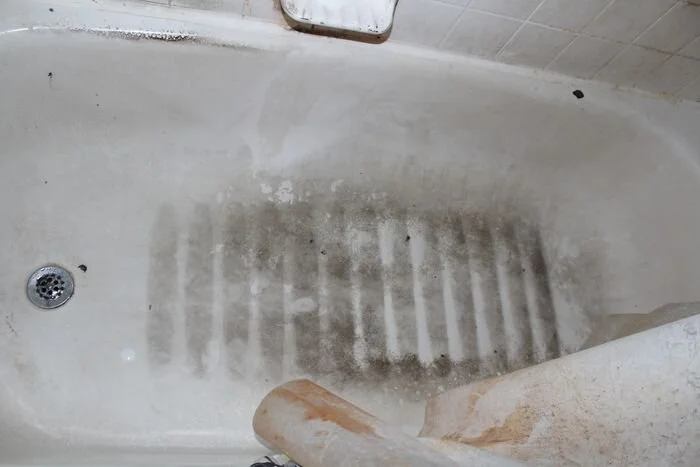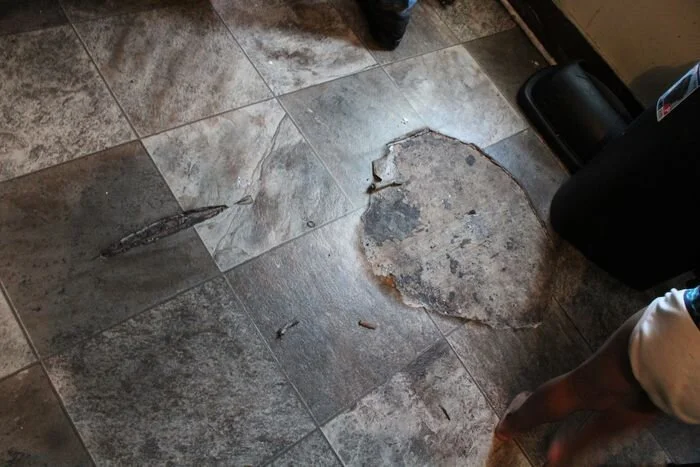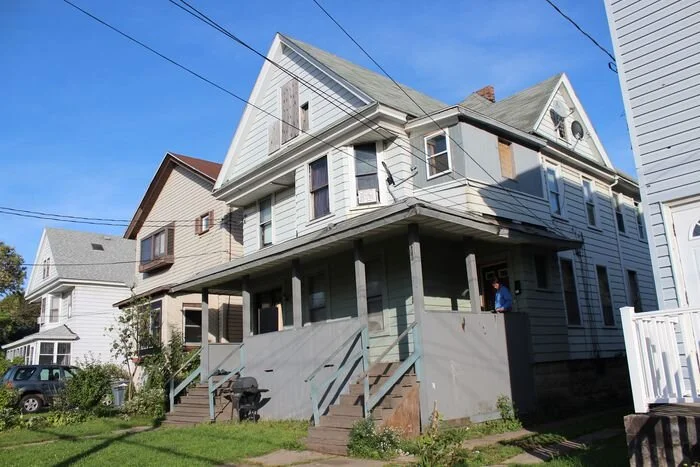'Decent housing is not a charitable endeavor: It is a human right' (Commentary)
This commentary was originally published on www.syracuse.com.
We are currently conducting a study of why people in Syracuse get evicted and what happens to them once they are forced to move. We read with interest two recent Post-Standard articles about the challenges of finding decent, affordable housing in our community. The first, “After fatal fire, Syracuse landlord rents unit with ash-stained ceiling, no smoke detectors” (Sept. 30, 2019), traced the struggle of Tawanda O’Neal -- one of the participants in our study -- who lives in deplorable conditions in an apartment owned by EndZone Property, called the city’s “most notorious landlord.” The second shared the offer by another landlord, Ben Tupper, to pay some of the costs of O’Neal’s move (" 'We are not all jerks;’ SU landlord puts up $1,000 to help family leave slumlord,” Oct. 3, 2019).
The articles echo what we are finding in our research. All of the people we interviewed for our study are living in substandard housing with obvious code violations. These conditions include sewage backing up into their houses, leaks, broken windows, doors without locks, and vermin – roaches, rats and bedbugs.
Some people will ask: “Well, why do people rent such places?” It is not easy to move – as O’Neal’s story reveals, there are moving costs, security deposits, updating identification, and transferring your child’s school, to name but a few impediments. One 65-year-old woman we spoke with had to seek medical care for bed bug bites. She was forced to use her rent money on a motel room, which in turn led to her eviction. The eviction was dropped when she provided the court proof of the medical problems. The landlord finally addressed the problem, but she had to throw out all of her belongings, which were infested with bed bugs. She slept on the floor for three months until she could afford a new bed.
Discriminatory rental practices limit the options people have. Most of the people we interviewed live in the poorest neighborhoods of Syracuse, yet are paying rents higher than many mortgages or rents in so-called “better” neighborhoods. Many are working, yet earn too little to afford a security deposit. Some are de facto blacklisted from renting habitable apartments because they have been evicted in the past, or they have a past criminal record, or because the landlord will not accept Section 8 vouchers or public assistance. Desperate to put a roof over their families, they are driven to rent an apartment that is uninhabitable, legally and by any other measure. Ironically, the rent for this substandard housing is often paid for by our tax dollars, providing profit for slumlords who accept public assistance or Section 8 vouchers.
Syracuse remains one of the poorest cities in the country, with much of this poverty due to the structural conditions that lock people into neighborhoods owned by slumlords. To his credit, Mayor Ben Walsh has made housing stability a core focus of his administration: stronger code enforcement; rental registry inspections; and developing a rental property grading system. It is not clear that any of these measures are cost prohibitive to slumlords who have a captive market of prospective renters desperate for housing. We need policies and laws that would make it impossible for a landlord like EndZone to again rent an apartment without smoke detectors – the very same apartment where someone died in a fire – and without ensuring basic habitability.
The charitable impulse to help O’Neal pay a small part of her moving expenses may be well-meaning, but decent housing is not a charitable endeavor: It is a human right. Stronger regulations are needed, particularly those that would make it financially untenable for slumlords to profit by renting out houses that are unfit for human habitation.
As last year’s legislative session has shown, the voices of tenants and their allies can create laws that protect renters. Those landlords who want to demonstrate that “they are not all jerks,” as Ben Tupper told the Post-Standard, should join them.
Palmer Harvey, Co-Founder, Syracuse Tenants Union
Deborah Kenn, Syracuse University, College of Law
Gretchen Purser, Maxwell School, Sociology
Jonnell Robinson, Maxwell School, Geography Department
Evan Weissman, Falk College, Food Studies
Marsha Weissman, Maxwell School, Sociology








